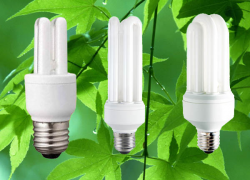
Every year, interest rates are increasing and the cost of heating is definitely going up. Whether we admit it or not, we sometimes find our selves running out of money. However, if you compare an average house to an energy efficient residence, you’ll find out that it is very possible to lessen your annual energy consumption to almost 40 percent.
There are lots of ways to conserve home energy which consequently lower your energy bills. And most of the changes that you can do for your home are also helpful to the environment.
Here are some ways to conserve energy in your home:
·Heating and Air Conditioning
- If you’re going out of an air conditioned room for a long time, be sure to turn off the A/C unit.
- Rooms that are not used often should have sealed vent.
- You can also install ceiling fans that are remote controlled than have a built-in heater.
- When the room is occupied, put the thermostat in a comfortable setting.
- When the fireplace isn’t used, close the damper in the fireplace
·Laundry Appliances
- Avoid using your washing machine in partial loads. It is better if you meet the capacity of the machine.
- Dirty clothes must be pre-soaked for hours. This will prevent you from running your machine twice.
- For the garments that aren’t very dirty, put small quantity of detergent and put your machine to a lighter wash setting.
- Electric drier consumes more energy in drying clothes so better apply the conventional way of drying your garments.
- Ironing clothes should be done at one time and during off-peak hours
·Refrigerators and Freezers
- Refrigerators and freezers must be defrosted regularly. Frost build-up can increase the load of the compressor motor.
- Inspect your refrigerator and look for a leaking gasket.
- Avoid constant opening and closing of the refrigerator’s door because it can contribute to ice or frost build-up.
·Kitchen Appliances
- Don’t boil water in an open pan. A pan that’s covered will boil the water faster.
- Keep the burners, range top and reflectors clean. It can help generate more heat and consume less energy.
- When the food you’re cooking starts to boil, turn the electric stove to low mode.
- Don’t put smaller pans or pots in small burners or heating elements.
·Lighting
- Switch off unused lights as well as other appliance that use electricity.
- Utilize low wattage yet efficient lamps.
- Replace your incandescent bulb with fluorescent lamp.
Those are just handful of tips to lower your energy bills. There are many other factors which can also guide you in conserving your home energy.
Remember that the two great factors which you can change in order to enhance your quality of life are your lifestyle and your home. If you want to modernize your home, you have to make significant decisions regarding your household appliances. In today’s world, we are faced with a wide range of appliance styles, sizes, configurations and technologies. Evaluating your household appliances can help a lot in your aim to save home energy. The following are the factors that can help you compare and assess your home appliances:
Energy Efficiency. It is always good to carefully weigh up the energy efficiency of the appliances in your home. In some household devices, you are left with a choice between electricity and natural gas as the source of power. The energy efficiency can also be based on the materials the machine or appliance is made of. Various materials can be cooled and heated at different rates.
Size. Having an appliance with the right size is significant. Speed also comes into play. Generally, the faster an appliance finishes its task, the less time it uses energy.
Features. Assess first the features of an appliance before purchasing it and think carefully how these features can improve your lifestyle.
Another advisable tip is to come up with a home energy conservation plan. There are various approaches which you can use in developing such plan and these include:
- Identification of the places where home energy is used inefficiently or lost
- Prioritizing the said areas and finding out how much energy is being wasted
- Correcting the said problems systematically depending on your home energy improvement budget
As you come up with your home energy conservation preparation, you should first identify the problem vicinities. It is good to start in the area where higher amount of energy is used because that area can also be the best place to gain potential savings. With the abovementioned home energy conservation tips, you can free up more bucks without increasing your income.



